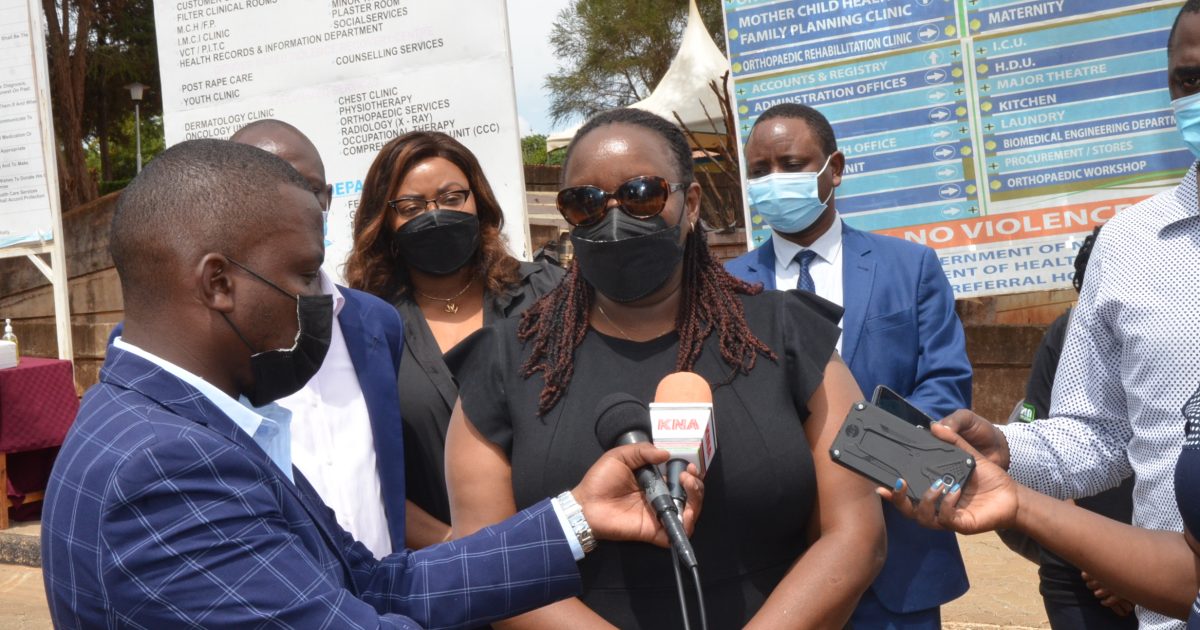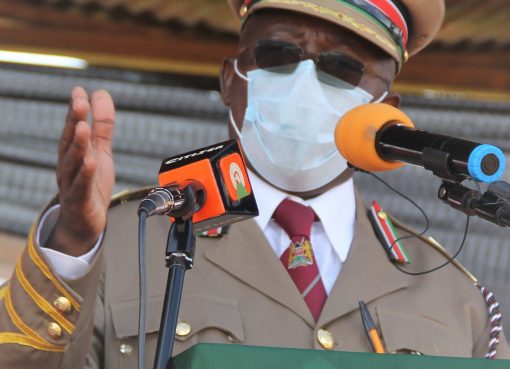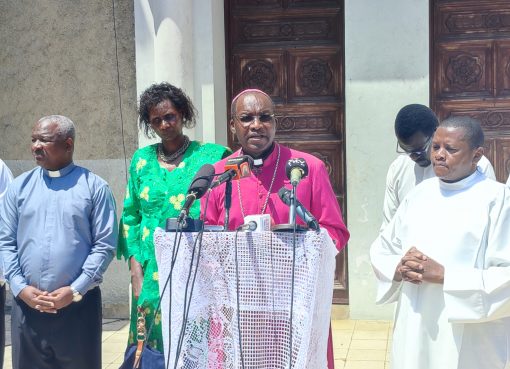Forty-two-year-old Mary Nyawira could not hide her joy when she spoke from her hospital bed at the Nyeri County Referral hospital.
When a team from M-Pesa Foundation, the Flying Doctors Society of Africa and Nyeri Health officials made their rounds to check on the progress of the beneficiaries of the free Vesico Vaginal fistula reconstructive surgery camp, the elated mother of three, ushered them with words of gratitude loud enough for all to hear.
“All I can say is for God to bless you because the medical camp has helped a lot of women living with fistula and who did not know that it can be corrected,” she said.
For the last 20 years, Nyawira has lived with fistula, a condition she developed after giving birth to her first child in 2001. It was after the birth of her second child in 2004 that medics confirmed that she had fistula and from then she decided to leave a secluded life.
Until Thursday last week when she checked into the hospital, Nyawira narrates how simple reflexes like sneezing and coughing had to be undertaken with a lot of caution to avoid soiling herself.
“It is only my husband who knew that I had fistula. As much as he has been very supportive, I had to devise ways of living with the condition for fear of being ostracized,” she says.
“I had to improvise diapers which I made from old handkerchiefs and I walked around with rolls of toilet paper in order to enjoy some semblance of a normal life. It is a difficult life that has seen me abandon church in the middle of the service and even meetings to avoid getting embarrassed,” says Nyawira.
Obstetric Fistula is an abnormal opening between a woman’s genital and urinary tract and is attributed to prolonged or obstructed labour during childbirth. The condition is characterized by urine and fecal incontinence.
Statistics from the World Health Organisation estimate that over two million women are living with obstetric Fistula in Asia and Sub-Saharan Africa. Kenya alone records between 1,000- 3,000 cases annually but the sad bit about the statistics is that only 7.5 per cent have access to treatment for the condition.
For many women like Nyawira, the cost of reconstructive surgery to correct vaginal fistula remains the main deterrent that has many of them peg their hopes on interventions such as the weeklong free camp in order to get treated. The cost of a Fistula repair in public hospitals in the country ranges between Sh50, 000-Sh 90,000 while at a private facility the charges range between Sh250, 000-Sh450, 000.
During the launch of the camp, Nyeri Health CEC, Kwai Wanjaria, said that the County Government was working towards integrating fistula reconstructive surgery as one of its services.
He said that the move would ensure continuity of the programme so that affected women do not have to wait for that one week in a year to get help. He said that his department would capitalize on the improved healthcare infrastructure in the county and the support of community health workers. Currently, there are only four fistula specialists in Nyeri.
“We can work with the 2,500 community health workers so that they are able to identify these women and refer them to their nearest health facility for treatment. We are also hoping to set up a dedicated theatre for each specialty including a gynecological one which can run 24 hours a day. Hopefully through such efforts, we can continuously offer corrective surgery for these women so that they do not have to wait for medical camps such as these which come by once in a year to get treatment,” said Wanjaria.
Nyawira is one of the 60 women from Nyeri and other neighbouring counties who were targeted by the free medical camp that was aimed at supporting women with obstetric fistula and provide free corrective surgery.
The one-week camp which started last week on Thursday with the screening of beneficiaries is a joint collaboration between Safaricom M-Pesa Foundation and Flying Doctors Society of Africa who are funding the surgeries and providing medical supplies.
“Surgeries started on Monday 22 and will go on until November 26. The facility has been performing between 7 and 10 surgeries daily. In addition to the medical support, we are hoping to engage men in a bid to demystify fistula and help them find better ways of taking care of their women,” said Sophie Onyango, Safaricom Foundation Programmes Manager.
This is the second camp to be held in Nyeri. During the inaugural camp in 2019, over 121 women benefited from the corrective surgeries. Another 146 women with urine incontinence were offered physiotherapy.
“The target this year was to have four medical camps and restore the dignity of 180 women throughout the country. We started in Bungoma in October where we had initially hoped to do 30 surgeries but we performed over 70 surgeries. In addition to sponsoring the cost of surgeries, we are also urging our women not to shy away from seeking treatment because the condition is preventable and treatable,” said Tanya Nduati, the Flying Doctors Association of Africa boss.
By Wangari Mwangi





